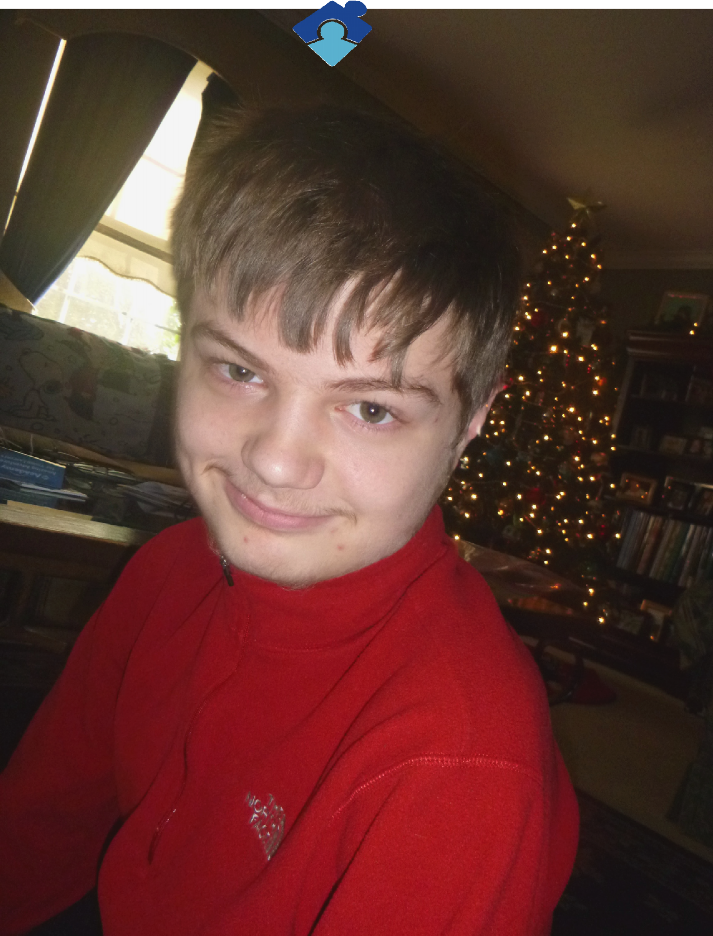
LIFE AFTER 21
BY KIMBERLEE RUTAN MCCAFFERTY
I recently had the opportunity to have breakfast with two lovely women, both of whom have children in my son Justin's school. As usual, our conversation focused on autism (is there anything else to talk about?), and also as usual, we expressed our desires to create some type of home for our kids where they could live together one day. I guess a home is a somewhat modified version – our dream would be akin to something that's a cross between the Kennedy compound and Disney, with every possible accommodation available to our boys.
I realized at that breakfast how lucky I am that I have a handful of parents I'd even consider doing some type of group home situation with, if we have the money, or if the rules are relaxed. Truly, I think the greatest compliment I can bestow upon anyone these days is I'd let you in my group home.
About an hour into the breakfast, I looked at my friends and said, "I bet nobody in this restaurant is having this conversation," and we all laughed, because it's true. Although autism has taken over our world, relatively speaking, it is still a rarity in the general population. I'm sure some of the things we said would shock parents of neurotypical children, but these things are just the realities of our lives, and it's so good to have people to talk with about the more difficult issues of the disorder.
I am grateful for these women. I've also noticed over the past six months or so a shift within me, one in which I'm feeling comfortable beginning to contemplate Justin's future after 21. Honestly, for years we were so overwhelmed just getting through the day that I couldn't even begin to think about his adulthood. But I'm feeling more ready now. In the next five years, I will be taking on applying for Medicaid and Social Security, applying for guardianship, and looking for a day program where I'm told my goals should focus on my son being "happy and safe."
And I'm ready to start talking with friends and family about what Justin's after-21 life may look like, and the impact it will have on our family.
The truth is, I'm very nervous about him graduating. I've heard there's often a six-month gap from graduation to adult autistics starting a day program, and although we might be able to fill the first few months with camp, that still leaves a long fall/winter potentially ahead of us. Justin likes to be home but also likes to be out in the community, and I know in-home supervision is just not right for my boy. He loves school and does better when engaged for six hours a day, so I am confident he will need a day program for his sanity, and mine. The programs are strict about behaviors, so I am hopeful we will continue on our current track and he will be able to handle a new situation behaviorally.
Fingers are continually crossed on that one. I want so much for Justin to be able to handle a program, in part because I think it will make him happy, and his happiness is important to me. But I also want him to be enrolled in a program because I want some modicum of freedom in my old age. If Justin is home, I need to be home with him, know where he is in our house, keep an eye on him constantly. It's not what I envisioned my impending sixties would entail.
I'm writing about this because I don't think my husband Jeff and I talk enough about the lifelong impact Justin's severe autism has had on the family—a choice we've made because when we're with our families and friends, frankly, we just want to have fun with them, and talking about these issues is not very uplifting.
But now it's time for us to start talking. It's time to explain to the people in our lives that when they're contemplating where they want to live in retirement, we'll be hoping we're not babysitting our adult child 24/7. It's time to talk about the fact that there may not be residential funding for Justin until his father and I are in our seventies, and what that reality entails. It's time to talk about the fact that Jeff and I are really tired now, therefore not so confident we'll be up for this in 20 years. The truth is, of course we don't have a choice, and we will do the best we can for our boy, as we've always tried to do.
In the meantime, I need the people in our lives to know (at to the two of us), the future is daunting. I have no doubt we'll have help along the way, as the autism parent community we've tapped into is knowledgeable and so helpful, and I'm confident my many future questions will be answered, and help will be available.
I am remaining positive, hopeful for good choices for our son (I like having choices). He tries so hard to be happy every day, I want to see that reality for him. So, keep your fingers crossed for us too, and know we want to start this conversation now.•
ABOUT THE AUTHOR: Kimberlee Rutan McCafferty, mother to two sons on the autism spectrum and an Autism Family Partner at the Children's Hospital of Philadelphia (CHOP). Kim is also the author of a blog at autismmommytherapist.wordpress.com. Kim's book Raising Autism: Surviving the Early Years is on sale on Amazon here. BY ALEXANDRA BAIG, MBA, CFP